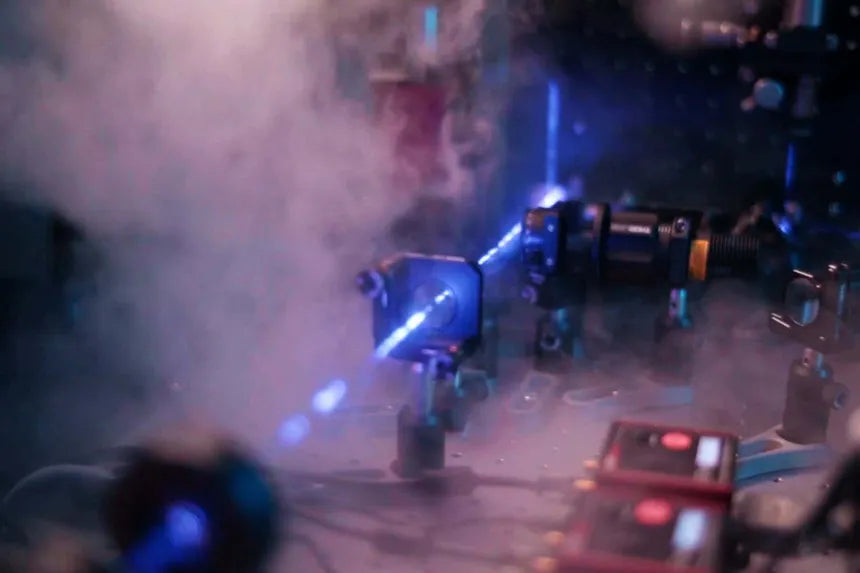
Quantum Biology
Life, Light, and Quantum Leaps in Medicine: A Journey Through Deep Time and Deeper Biology
Listen to the podcast here.
Life’s story began 3.8 billion years ago on a very different Earth. For billions of years, Archaea and Bacteria thrived in a reducing atmosphere. Then the sun, our midlife G-class star, intensified its UV output by about 10%. This surge drove the Great Oxygenation Event and later the Cambrian Explosion, leading to diverse, complex life forms. Among the most transformative innovations was the rise of mitochondria (see the MLP Formulary)—once free-living bacteria that became powerhouses of eukaryotic cells.
From Ancient Biology to Modern Health
What do these deep-time events mean for us today? Neurosurgeon Dr. Jack Kruse argues that the interplay of light, water, and magnetism is the missing key to modern medicine. He critiques the reductionism of randomized controlled trials and highlights quantum biology as a path forward for tackling conditions like myopia, infertility, depression, and schizophrenia.
The Quantum Connection
Kruse suggests that cells act as semiconductor fabs—using light to organize atoms with precision. This isn’t just metaphor: physics research supports semiconduction in biological molecules.
Semiconduction in Biology
Studies since the 1940s reveal proteins can conduct electrical currents. In the 1960s, Robert O. Becker confirmed semiconduction in collagen and bone apatite, implying it plays a role across tissues.
The Importance of Light
In 1923, Alexander Gurwitsch demonstrated that UV light stimulates cell division. Light is not just energy—it regulates biology.
Water as a Quantum Battery
Gilbert Ling proposed that structured water in cells acts as an energy reservoir, influenced by electromagnetic fields. This “fourth phase” aligns with Kruse’s framework.
Harnessing Quantum Biology for Healing
By aligning with these quantum processes, Kruse’s protocols aim to optimize biology:
- Sunlight Exposure: Regulates circadian rhythms, produces nitric oxide, and energizes water networks.
- Cold Thermogenesis: Boosts mitochondrial function and activates the mammalian dive reflex.
- Microbiome Optimization: Recognizes bacterial light emissions as a key part of gut–brain signaling.
Quantum Biology and Human Health
Kruse and others propose quantum insights could help address:
- Cancer: Understanding light and semiconduction may unlock new ways to prevent or reverse growth.
- Autism: Optimizing light exposure and water networks may improve outcomes.
- Mental Health: Balancing light-water-magnetism may support mood and cognition.
Beyond Kruse: Other Quantum Biology Voices
- Microtubules & Consciousness: The Penrose-Hameroff “Orch OR” theory explores quantum computations in microtubules.
- Quantum Effects in Pain: Some studies suggest tunneling plays a role in nerve signaling.
- Electroceuticals: Michael Levin at Tufts investigates bioelectric signals to guide cell repair and regeneration.
The Future of Medicine
Quantum biology is still emerging, but its implications are profound: new diagnostics, therapies, and prevention strategies may arise as we learn to harness light, water, and bioelectric fields. The potential for human flourishing is vast.
Explore related topics in our blog. For products that support light, mitochondria, and cellular health, visit our catalog.
Sources & Further Reading
Dr. Jack Kruse and Andrew Huberman, Ph.D (Part 1)
Dr. Jack Kruse and Andrew Huberman, Ph.D (Part 2)
Exiled Brain Surgeon: Quantum Biology & Sunlight Medicine
How Light Sculpts Your Microbiome | Dr. Jack Kruse
Michael Levin: Cellular Collective Decision-Making
Michael Levin on Life, Evolution, and Xenobots | Lex Fridman Podcast
More from PureClean Performance: Ask Dr. Cohen Series
